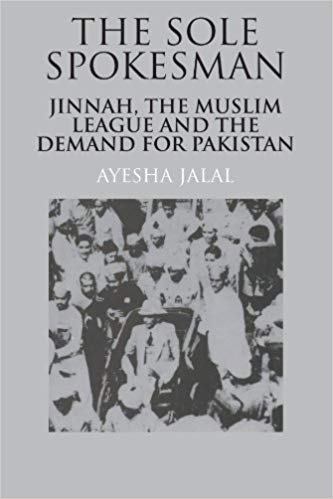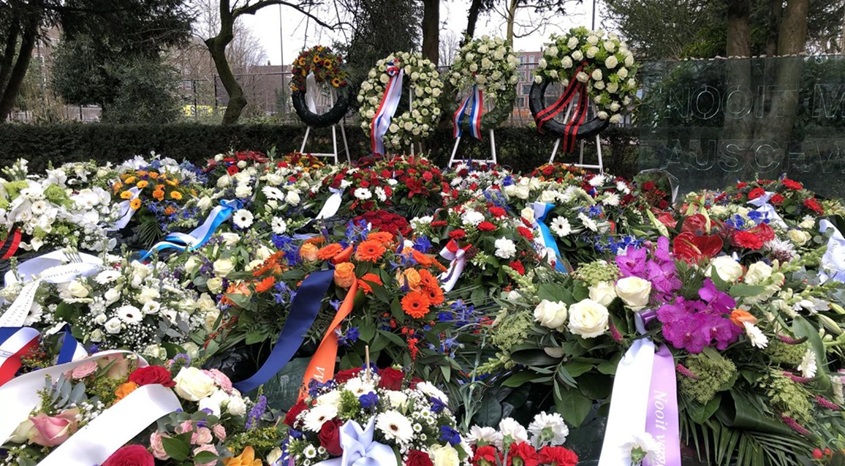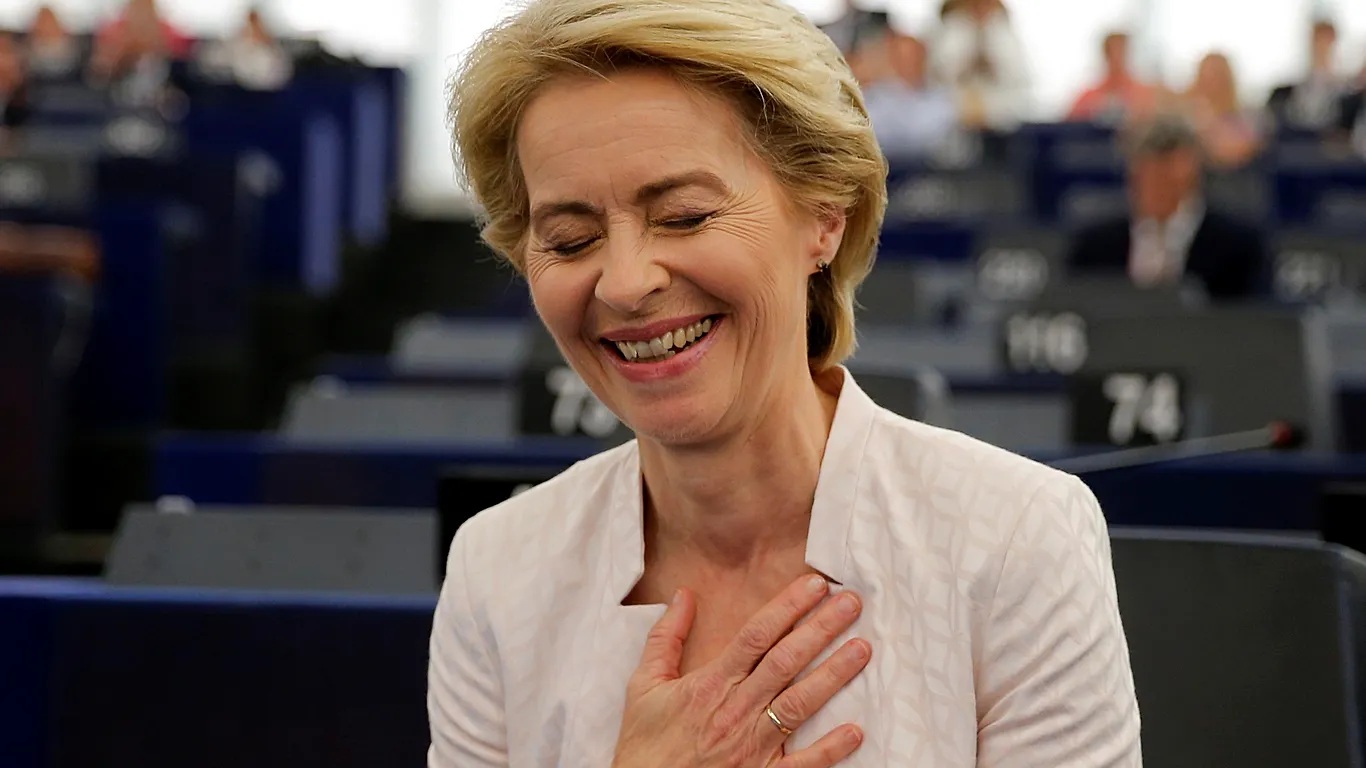
"The Sole Spokesman: Mohammad Ali Jinnah and the Founding of Pakistan" - by
Reviewed By Dr. Geoffrey Cook* -- In the West, it is easy to paint Mohammad Ali Jinnah as the “evil” nemesis of Gandhi in the struggle for self-rule on the Indian subcontinent. The one who tricked a “wimpy” Lord Mountbatten, the last Viceroy of British India, into dividing the former Colony into a Pakistan and India. This an oversimplification of the historic phenomenon.
Your author is going through his papers and discovered a review of Ayesha Jalal’s The Sole Spokesman: Jinnah, The Muslim League and the Demand for Pakistan published in 1985. The review was not done for publication; so, your author has decided to use it as a basis for this essay.
Ali Jinnah is still recognized as Quaid-i-Azam, the great leader and Babi-Quam, the father of the Pakistan nation. As leader of the Muslim League, he was responsible for convincing Mountbattan to form a Muslim country from the Islamic minority in British India. This led to the disaster of Partition. He survived as Pakistan’s first Governor-General, but died in 1948, a year after Independence. it has been said if he lived longer Pakistan would have been much more successful state than it is thought to be.
In the West, Indo-Pakistani politics appear Byzantine. Dr Jalal does a tolerable job in establishing the chronology of the history she relates (although a chronological table would have helped). Though what she portrays is what led up to the tragedy (Partition) propelled by certain elites rather than a drama of subalterns (the non-elite classes) struggling for self-agency i.e., the right to determine their own political destiny.
What is so curious about this book is her assumption that any of these politicians – M.A. Jinnah et al. had any control over history which was being formed before them; that, ultimately, it was the under class creating the history that was theirs. The elites were only orchestrating the history that was being created from below.
The Colonial/Imperial powers were left so bankrupt and impotent after the two World Wars that India had to be quitted at any cost. This last fact was devasting to the strategy of Jinnah’s Muslim League – that is, his misjudgment of Britain’s staying power. Jinnah had foreseen a bi-Carmel legislature – one would be Muslim; the other Hindu. Each could veto the legislation of the other. This would guarantee the rights of the minority in a united India. Pakistan was a “hollow bluff.” Yet with the evolving environment surrounding of the historical milieu made the former solution unpractical due to the alacrity that the British thought they had to leave. Therefore, Jinnah’s bluff of Pakistan was called by Lord Mountbatten.
It is no wonder why the ends were so different than Jinnah and the Muslim League elites had imagined because those at the Islamic Indian Center failed to understand the popular pulse of their “constituents” -- particularly in the Punjab and Bengal. Oswald Spengler characterized the concepts of nationality (in what he called) the Magian civilizational groups (in which he included the Islamic) as layered…one nation living next to the other – even in a single village – often demarked by religion. This seemed to have been Jinnah’s original concept; i.e., governed by a legislature of parallel religions. A Muslim nation within, independent and equal to a Hindu.
Still to the British, the Congress and much of Islamic South Asia, Pakistan was a bounded piece of geographic “dirt” which would be for the Muslims.”
Thus, a nation state constructed in the European manner. The failure of the Islamic elites of the Independence period, and Jinnah’s failure to communicate their national aspirations to the crumbling British Colonial State led to the tragedy of Partition.
In the light of 70 years of history, the British goals in quitting their Indian possessions were unrealistic. That was to hand over an independent united India made up of Hindus, Muslims, Christians Jews and animists. Although the unification of India was a great historical feat by the British, it was unreasonable to think it would continue so under self-determination. India today is still an “empire” held together by the glue of the gun. If the internal states can go their separate ways, the remaining states would be weak and vulnerable. Thus, it is true of the state of Pakistan, also. We have seen Pakistan hacked out of the Indian Colonial state and Bangladesh later ripped from Pakistan. The Commonwealth, the of independent nations with a past association to Britain is a little more than an anachronism from the view of the 2010s. The British hoped a united India (with which what was to become Pakistan) was to defend the Commonwealth and British interests east of Suez, but instead the two entities have in fact fought three wars against their former “brothers.”
Out of this history, Ayesha Jalal creates a drama of Shakespearian proportions of megalomaniacal elites. She fails to tell her readers where these people / these characters / these elites get the power to do anything. This is history from above; Jinnah was definitely not the sole spokesman for all Muslims in South Asia.
This book sorts out the chronology of how the Colonial elites laid a “wreathe” of power on a certain other Nationalist elites who, in turn, were to lay the intellectual foundation for the Post-Colonial state.
What about the people below? What about the millions who died horribly because of the decisions and strategies of their elites – both Indian and Pakistani? Their decisions are written in blood because the subalterns were denied a voice of their own. To Jalal they are only the backdrop to the “National elites “struggle” with their Colonial counterparts who in turn had created the Other. The work is only the tip of the iceberg to this history.
*Geoffrey cook is an American historian and researcher.





